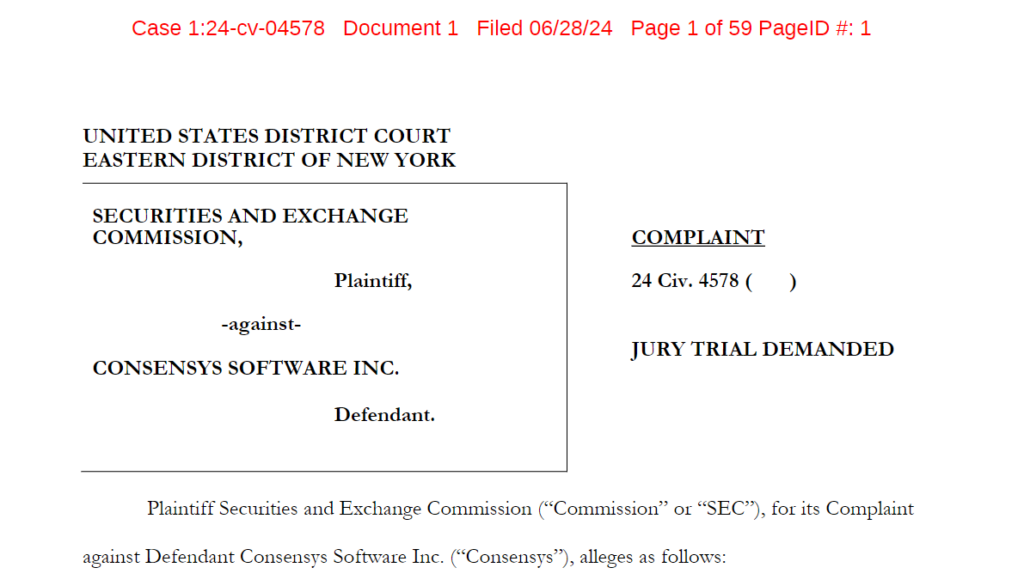SEC Files Suit Against Consensys for Unregistered MetaMask Brokerage and Staking
"Consensys has offered and sold tens of thousands of securities for two issuers: Lido and Rocket Pool. By this conduct, Consensys acts as an underwriter of those securities and participates in the key points of their distribution"
The SEC's lawsuit against Consensys claims that the company has collected over $250 million in fees from brokering crypto transactions and providing staking services without proper registration. The regulator argues that these actions deprived investors of essential protections. The SEC seeks a permanent injunction, civil penalties, and other equitable relief against Consensys for these alleged violations.
The complaint states that since January 2023, Consensys has offered unregistered securities through MetaMask Staking.
The United States Securities and Exchange Commission (SEC) asserts that Consensys has been involved in the sale of securities for Lido and Rocket Pool, acting as an underwriter. The regulator claims that Consensys played a significant role in their distribution.
"Consensys has offered and sold tens of thousands of securities for two issuers: Lido and Rocket Pool. By this conduct, Consensys acts as an underwriter of those securities and participates in the key points of their distribution,"
Consensys Challenges SEC's Authority Over MetaMask and Ether Staking
In response, Consensys argues that the SEC lacks the authority to regulate software interfaces like MetaMask. The company had previously sued the SEC in April after receiving a Wells notice, challenging the potential classification of Ether (ETH) and related staking services as securities.
"The SEC has been pursuing an anti-crypto agenda led by enforcement actions. This is just the latest example of its effort to redefine well-established legal standards and expand the SEC's jurisdiction via lawsuit,"
Consensys stated.
The SEC's complaint classifies staking programs offered by Lido and Rocket Pool as investment contracts. It claims that investors are placing Ether into a common enterprise with an expectation of profits. The SEC argues that neither Lido nor Rocket Pool has filed a registration statement, making these staking programs unregistered securities.






